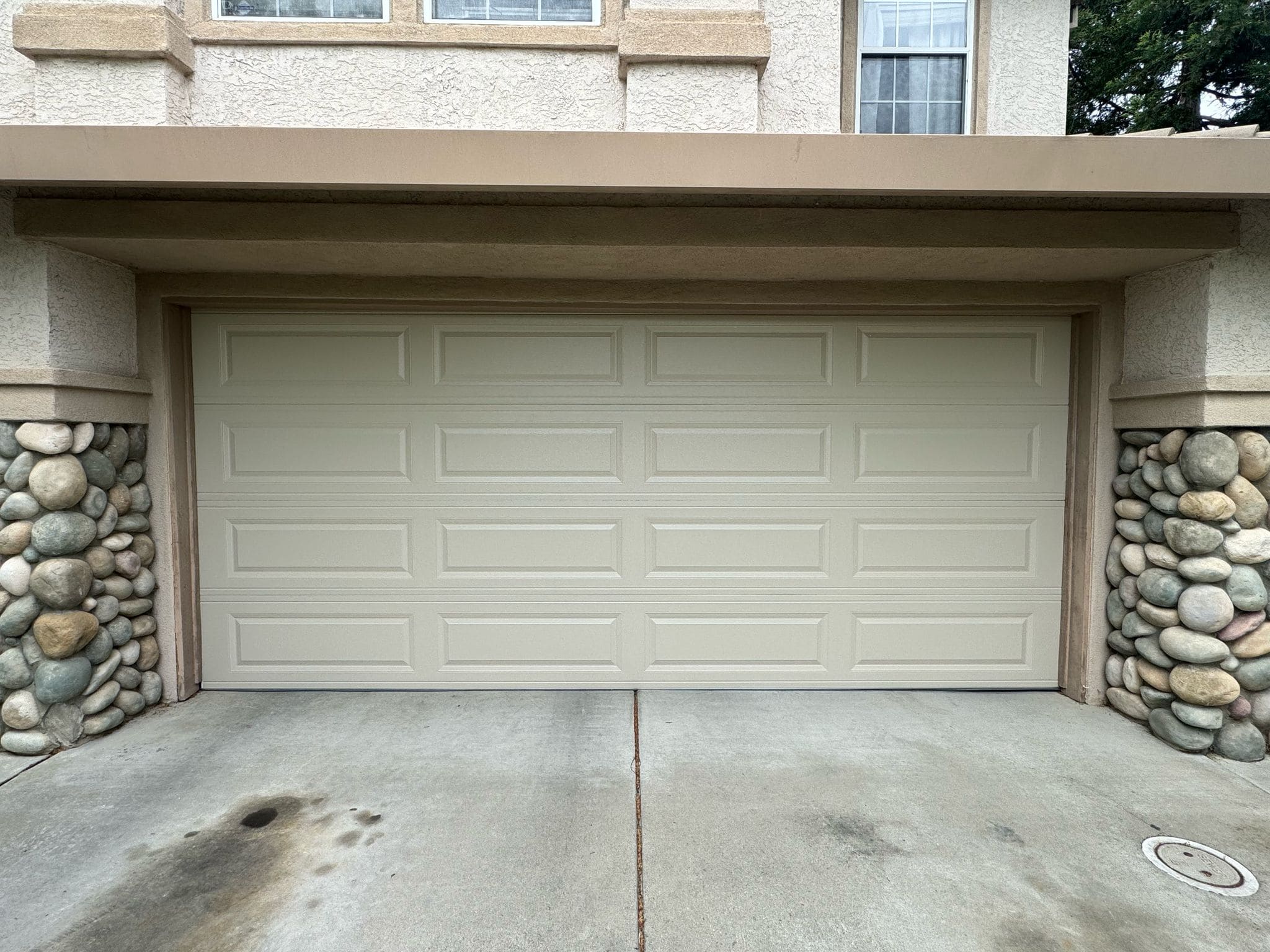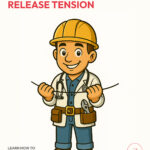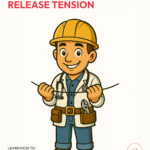The Dangers of DIY Garage Door Repair
When it comes to home security, most people think about front doors, windows, or backyard fences. But there’s one entry point that many homeowners overlook: the garage door.

If your garage door starts making strange noises, struggles to open, or stops working altogether, you might be tempted to grab your tools and fix it yourself. After all, DIY projects can save money and give a sense of accomplishment.
If your garage door starts making strange noises, struggles to open, or stops working altogether, you might be tempted to grab your tools and fix it yourself. After all, DIY projects can save money and give a sense of accomplishment.
But when it comes to garage doors, a simple repair attempt can quickly turn into a dangerous situation. Every year, thousands of homeowners are injured while trying to repair garage doors. From broken bones and deep cuts to serious head injuries, the risks are real-and often underestimated.
In this article, we’ll break down the dangers of DIY garage door repair, explain the most common mistakes, and show you why calling a professional is not only safer but also smarter in the long run.
Recent Post
- Garage Door Spring Repair in Sacramento, California: Signs of a Broken Garage Door Spring & What to Do Next
- Garage Door Spring Repair in Sacramento, California: What to Do When You Have a Broken Garage Door Spring
- Garage Door Spring Repair in Sacramento, California: What “Release Tension” Really Means & Why DIY Can Be Dangerous
Written by
Published on
Why Garage Doors Are Riskier Than They Look
At first glance, a garage door seems simple: it goes up, it goes down. But behind the scenes, it’s a heavy and complex system that relies on multiple parts working together.
- Weight: Most garage doors weigh between 150 and 400 pounds. A sudden drop could crush tools, cars-or worse, people.
- High-tension springs: Torsion springs are wound tightly to lift the door. If they snap, the force can cause severe injury.
- Moving parts: Tracks, rollers, and cables create pinch points where hands and fingers can easily get caught.
- Electrical components: Modern doors often include sensors, motors, and wiring that can be hazardous if tampered with.
In short, what looks like a quick fix can become a life-threatening accident in seconds.
Hidden Dangers of DIY Garage Door Repairs
High-Tension Springs Can Be Deadly
The torsion or extension springs on your garage door carry enormous pressure. That tension is what makes it possible for you-or the opener motor-to lift such a heavy door. Attempting to adjust or replace springs without the right tools and training can cause them to snap violently, sending metal pieces flying. Injuries can include broken arms, facial cuts, or even permanent damage.
Heavy Doors Can Cause Crushing Injuries
Even if the springs don’t fail, the sheer weight of the door can be dangerous. Imagine a 200-pound slab of steel or wood suddenly dropping while you’re working beneath it. Broken bones, back injuries, and serious trauma are common results of DIY accidents involving door weight.
Electrical Hazards
Many people don’t realize their garage door opener involves electrical wiring. Tampering with these connections without knowing what you’re doing can lead to electrical shocks, short circuits, or even fire hazards.
Falls and Ladder Accidents
Garage door repairs often require working on ladders. If the door shifts unexpectedly, you could easily lose balance and fall, leading to sprains, concussions, or worse.
Common DIY Mistakes Homeowners Make
Even if you manage to avoid serious injury, DIY repairs often create bigger problems than they solve.
- Using the wrong tools: Specialized tools, such as winding bars, are essential for safely handling springs. Using makeshift tools like screwdrivers can be extremely dangerous.
- Misaligning tracks and sensors: A slight error in alignment can cause the door to jam, drag, or fail to close properly, creating ongoing safety risks.
- Over-tightening or loosening parts: Springs and cables require precise tension. Incorrect adjustments often damage the system or make the door unsafe to use.
- Relying on temporary fixes: Homeowners often apply quick solutions like extra screws or duct tape. These “fixes” rarely last and usually lead to more costly repairs later.
The Real Costs of DIY Gone Wrong
Many people attempt DIY garage door repair to save money. But in reality, it often ends up costing much more.
Medical Bills
A trip to the emergency room after a spring accident or crushing injury can cost thousands of dollars-not to mention the long-term effects of serious injuries.
Extra Repair Costs
If a DIY attempt goes wrong, a professional will need to fix both the original problem and the damage caused during the repair attempt. This usually makes the final bill higher than if you had called a pro in the first place.
Voided Warranties
Many garage doors and openers come with manufacturer warranties. Attempting DIY repairs can void those warranties, leaving you responsible for all future costs.
Why Professionals Are Safer and Smarter
Training and Expertise
Garage door technicians undergo training to understand the mechanics, safety systems, and repair techniques for all door types. They know how to handle springs, cables, and motors without putting themselves-or your property-at risk.
Specialized Tools
Professionals use tools designed specifically for garage door repair. This not only makes the job safer but also ensures it’s done correctly the first time.
Faster, Guaranteed Repairs
While a DIY project might take you an entire weekend, a trained technician can often finish the job in under an hour. Many companies also guarantee their work, giving you peace of mind.
Preventative Maintenance
Professionals don’t just fix the problem at hand. They also inspect your entire system for signs of wear and tear, helping prevent future breakdowns.
When to Call a Professional Immediately
Some garage door issues should never be attempted on your own. Call a professional like Garage Door Doctorz right away if you notice:
- A broken spring or cable
- The door has come off its tracks
- The door won’t open at all
- The opener makes grinding noises
- The door closes unevenly or at an angle
These are signs of serious mechanical issues that require professional tools and expertise.
Safer Alternatives for Homeowners
Not every garage door task requires a technician. As a homeowner, you can safely handle basic maintenance tasks such as:
- Lubricating rollers and hinges with garage door lubricant
- Cleaning the tracks to remove dirt and debris
- Checking weather stripping and replacing it if worn
- Testing the auto-reverse safety feature monthly
These simple steps can help extend the life of your garage door while keeping it safe and functional. Just remember-anything involving springs, cables, or motor repairs should be left to the pros.
Final Thoughts
DIY projects can be fun and rewarding-but garage door repair isn’t one of them. The combination of heavy weight, high-tension springs, and electrical components makes it one of the most dangerous home repairs you could attempt on your own.
What might seem like a way to save money can end up costing you much more in injuries, medical bills, or extensive repairs. By calling a professional, you not only protect yourself and your family but also ensure the job is done quickly, safely, and correctly.
Your garage door is the largest moving part of your home-don’t take chances. If something goes wrong, let a trained technician handle it.


